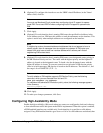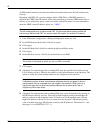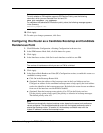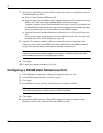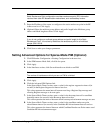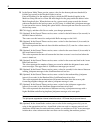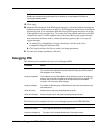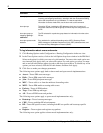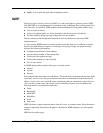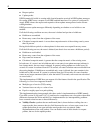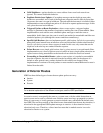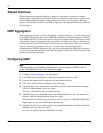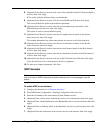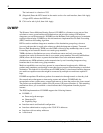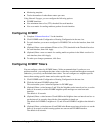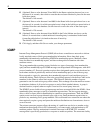
Nokia Network Voyager for IPSO 4.0 Reference Guide 385
Graft—Traces graft and graft acknowledgment packets
IGRP
The Inter-Gateway Routing Protocol (IGRP) is a widely used interior gateway protocol (IGP).
Like RIP, IGRP is an implementation of a distance-vector, or Bellman-Ford, routing protocol for
local networks. As specified, IGRP modifies the basic Bellman-Ford algorithm in three ways:
Uses a vector of metrics.
Allows for multiple paths to a single destination, thus allowing for load sharing.
Provides stability during topology changes because new features.
This document provides background information and cites differences with other IGRP
implementations.
A router running IGRP broadcasts routing updates at periodic intervals, in addition to updates
that are sent immediately in response to some type of topology change. An update message
includes the following information:
Configured autonomous system number
Current edition number of the routing table
Checksum of the update message
Count of the number of routes included
List of route entries
An IGRP update packet contains three types of routine entries.
Interior
System
Exterior
Each entry includes three bytes of an IP address. The fourth byte is determined by the type of the
route entry. Interior routes are passed between links that are subnetted from the same class IP
address. System routes are classful IP routes exchanged within an autonomous system. Exterior
routes are like system routes, but also are used for installing a default route. In addition, the
following metrics are included for each entry:
Delay
Bandwidth
Math MTU
Reliability
Load
Hop count
IGRP calculates a single composite metric from this vector to compare routes. Since the metrics
attempt to physically characterize the path to a destination, IGRP attempts to provide optimal
routing.
IGRP has two packet types.



